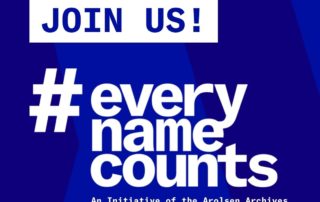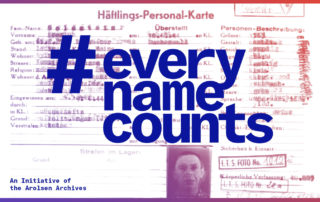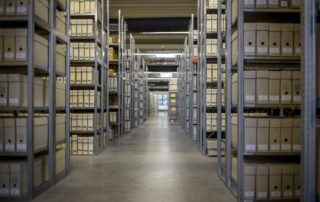Rachel Stern2022-02-18T06:38:48-05:00January 20th, 2022|Events, Lectures, Past Events|
Become part of an international community that actively helps build the largest digital memorial to the victims of National Socialism. During this 48 hour challenge, we help the Arolsen Archives index documents from the Central Location Index (CLI) at Yad Vashem, which have never been indexed before. Every number, every place, and every name you type in on the crowdsourcing platform will help preserve the memory of the persecutees – and make sure we never forget what happened to them. This event features Elizabeth Berkowitz, our former Digital Interpretation Manager, who speaks about #everynamecounts at the Fritz Ascher Society, and Katharina Menschick from the Arolsen Archives, who introduces the Arolsen Archives and the current project. A [...]
Rachel Stern2022-02-18T06:42:00-05:00May 11th, 2021|Events, Past Events|
Join the Fort Tryon Jewish Center (FTJC) and the Fritz Ascher Society for a LIVE DATA ENTRY EVENT to help build the world’s largest digital monument to victims of the Holocaust: the Arolsen Archives’ #everynamecounts. THIS EVENT WAS NOT RECORDED. Opening Remarks Rabbi Guy Austrian Fort Tryon Jewish Center in New York Rachel Stern Director and CEO of the Fritz Ascher Society in New York Introduction and Moderation Elizabeth Berkowitz Digital Interpretation Manager of the Fritz Ascher Society in New York #everynamecounts is a crowd-sourced data entry initiative to return the names of Holocaust victims, their families, and details of their lives into the findable, keyword-searchable public record. Participants enter information about Nazi victims and family members from digitized [...]
Rachel Stern2022-02-18T06:37:23-05:00March 4th, 2021|Events, Past Events|
The International Tracing Service (ITS), since 2019 called Arolsen Archives, was established by the Allies in 1948 as a central search and information center. They house the world’s most extensive collection of documents about the victims of National Socialist persecution, including documents from Nazi concentration camps, ghettoes and penal institutions, documents about forced laborers, and documents from the early post-war period about Displaced Persons, mainly Holocaust survivors, former concentration camp prisoners, and forced laborers. People who had fled the sphere of influence of the Soviet Union for political reasons are also included. The archive's holdings consist of 30 million documents in total and belong to UNESCO’s Memory of the World. At this event, Floriane Azoulay (Director) and Giora Zwilling (Deputy [...]





